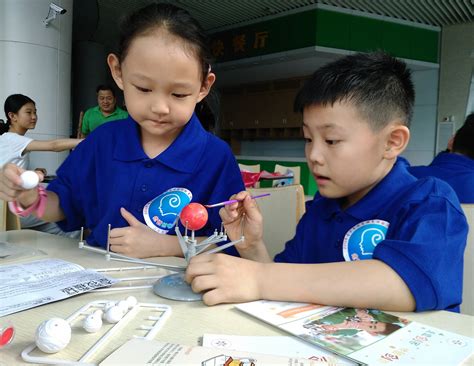Exploring the Intersection of Children, Education, and Technology
In today's rapidly evolving technological landscape, the integration of technology in children's education has become increasingly prevalent. This intersection of children, education, and technology presents a myriad of opportunities and challenges, shaping the way young learners engage with the world around them. Let's delve into some key aspects of how technology is influencing and enhancing children's education:
Technology allows for personalized learning experiences tailored to each child's unique needs and learning pace. Adaptive learning platforms, interactive educational games, and AIpowered tutoring systems can provide targeted support and feedback to help children grasp concepts more effectively.
Exposure to technology from an early age helps children develop essential digital literacy skills. By familiarizing themselves with devices, applications, and online resources, children can enhance their information processing abilities and become adept at navigating the digital world safely and responsibly.
Interactive learning tools such as educational apps, virtual reality simulations, and multimedia resources can make learning more engaging and enjoyable for children. These tools stimulate curiosity, creativity, and critical thinking, fostering a deeper understanding of academic concepts.
Technology enables children to connect with peers, educators, and experts from around the world, fostering a culture of global collaboration and knowledge sharing. Virtual classrooms, video conferencing, and online learning communities break down geographical barriers, providing children with diverse perspectives and learning opportunities.
Blending traditional teaching methods with technologyassisted learning creates versatile and adaptive learning environments for children. Flipped classrooms, online resources, and educational software complement inperson instruction, offering a holistic learning experience that caters to different learning styles.
Technology provides educators and parents with valuable tools for monitoring children's progress and assessing their learning outcomes. Digital platforms for tracking performance, generating reports, and identifying areas for improvement empower stakeholders to support children's academic growth effectively.
With the integration of technology in children's education, it is essential to emphasize the importance of ethical and responsible technology use. Teaching children about digital citizenship, online safety, and data privacy cultivates a culture of responsible digital behavior and empowers children to navigate the digital landscape responsibly.
Effective integration of technology in children's education requires collaborative partnerships between educators, parents, and caregivers. Encouraging parental involvement, providing resources for digital literacy training, and fostering open communication channels ensure that children receive consistent support and guidance in their educational journey.
The fusion of children, education, and technology holds immense potential to transform the way young learners engage with learning experiences and acquire essential skills for the future. By harnessing the power of technology thoughtfully and responsibly, we can create enriching educational environments that empower children to thrive in a rapidly evolving digital world.

